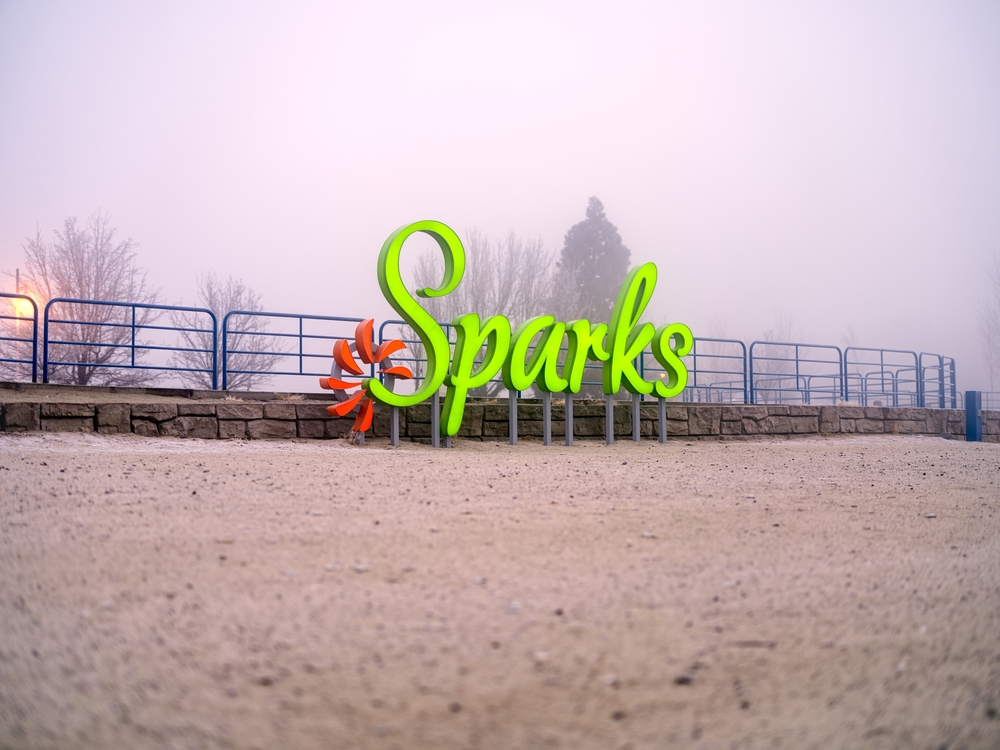By Michael Lyle, Nevada CurrentThis piece was originally published in the Nevada Current.
By Michael Lyle, Nevada Current
This piece was originally published in the Nevada Current.
After confusion over whether a series of laws passed in August that target those experiencing homelessness chronically are civil or criminal infractions, the Sparks City Council voted unanimously to clarify those ordinances as criminal misdemeanors.
The ordinance passed Monday sought to clear up language in the recent law that restricts unhoused people sleeping on sidewalks and in vehicles to reiterate that violating those offenses can carry a penalty of up to six months and jail and a $1,000 fine.
Senior Assistant City Attorney Mariah Northington said the ordinance could be used to funnel chronically unhoused folks into a community court where they could either accept services or potentially face jail time.
“There are situations where these may result in an arrest in situations involving people who refuse to identify themselves or have a history of not complying with community courts,” Northington said.
“It is our attempt and hope to use this as a way to further nudge them toward getting resources.”
Though the council passed the bills criminalizing the actions unanimously in August, Northington said legislative changes to the state’s traffic laws, which decriminalized certain traffic infractions, made interpreting the new ordinances “murky.”
“When they went into effect there was confusion expressed as to whether or not these were civil infractions or whether they were criminal misdemeanors,” she said.
Northington added the ordinance was only a “last resort for individuals who refuse resources and services” from the Homeless Outreach Proactive Engagement (HOPE) team, a response team part of the Washoe County sheriff’s office.
Sparks City Attorney Wes Duncan said since the law has gone into effect, Sparks hasn’t “seen a huge influx of criminal misdemeanors for things that deal with homelessness.”
He didn’t specify how many tickets or arrests have been made since the law first passed in August.
Sparks City Councilman Paul Anderson asked what would happen if unhoused folks violated the law by sleeping on sidewalks or in their cars but there weren’t emergency beds available for them to go to.
Under current federal law, the ordinance couldn’t take effect.
The 9th U.S. Circuit Court of Appeals, whose jurisdiction includes district courts in Nevada, has ruled in two cases that cities cannot punish unhoused folks for sleeping on the streets if there aren’t enough adequate shelter beds.
During Monday’s hearing, groups including Faith in Action Nevada and the Reno-Sparks Tenant Union criticized the council for punishing homelessness, saying “you can’t arrest your way out of this problem.”
“This is a transparent attempt to criminalize people for being unhoused,” one organizer said. “It is cruel and will do nothing to address why people are left with no options.”
Ahead of the hearing on the amendment reaffirming sleeping on sidewalks and cars as a criminal infraction, the council heard a presentation from the Nevada Housing Coalition, which reiterated the state’s ongoing housing crisis and shortage of affordable units.
The National Low Income Housing Coalition estimates that the state lacks an estimated 84,000 affordable units for extremely low income renters.
Maurice Page, the executive director of the Nevada Housing Coalition, told the council that U.S. Housing and Urban Development data showed “186,115 households in Washoe County are considered cost-burdened and spending more than more than 30% of their income on housing.”
Acting city manager Chris Crawforth, who alongside Duncan and Northington urged the council to clarify that the infractions were criminal and not civil, said the intent was not about criminalizing people who were pushed into homelessness because of unaffordable rents.
“We will not be not pulling someone over who has to sleep for a couple hours or somebody who is trying to get by and accept services,” Crawforth said. “I’ve been with our HOPE team and met with folks down on their luck and they don’t have enough money to pay rent because rent went up and they are living in a tent.”

